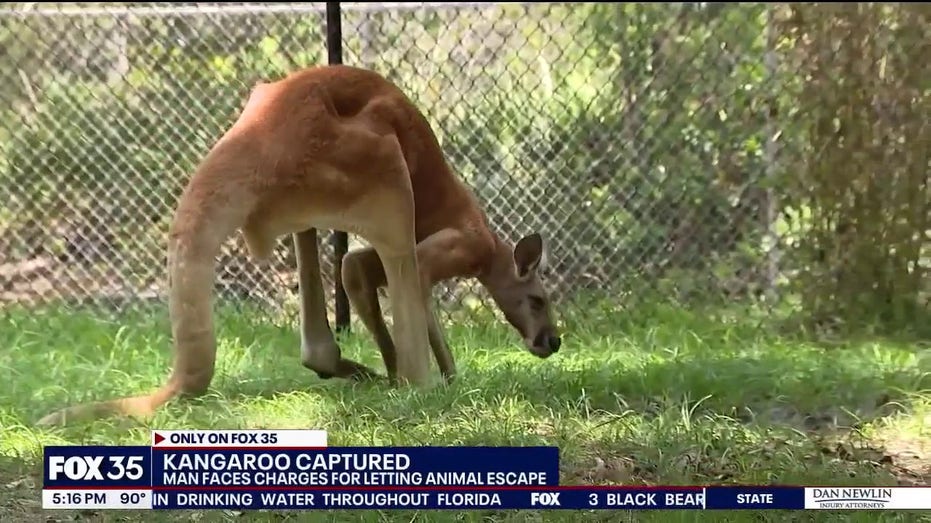A List Of Commonly Used Words and Their Synonyms for Writers
I have been writing scripts for so long, and I have seen characters get into situations in almost every genre and trope. It can be really overwhelming to continue to find new words to describe these scenarios and new ways to express myself. Each time I sit down to write, I wind up spending most of the time finding new ways to describe the same emotions and actions that occur in pretty much everything I write. That's why I wanted to help create a list of some commonly used words and emotions and their synonyms, so writers can diversify how they explain what happens on the page.These words are meant to spark your creativity and help take your writing to the next level. Let's dive in. A List Of Commonly Used Words and Their SynonymsCommonly Used Words:1. Good: General Positive: Fine, satisfactory, acceptable, decent, adequate, pleasant, nice, lovely, wonderful, excellent, superb, outstanding, exceptional, marvelous, terrific, fantastic, great, amazing, splendid, admirable, commendable, praiseworthy, sterling, choice, prime, top-tier. Describing Quality: High-quality, superior, well-made, first-rate, top-notch, premium, exemplary, flawless, impeccable, refined, well-crafted. Describing Behavior/Morality: Virtuous, righteous, honorable, ethical, kind, benevolent, well-behaved, principled, upstanding, humane, charitable, noble. Describing Skill: Proficient, skilled, competent, adept, capable, accomplished, expert, masterly, deft, adroit, polished, masterful. Describing a Result: Favorable, positive, beneficial, advantageous, constructive, effective, fruitful, productive, successful. Informal/Colloquial: Awesome, cool, wicked (in a positive sense), rad, brill (British), ace, killer. Formal: Commendable, meritorious, exemplary. Specific Contexts: Food: Delicious, tasty, savory, delectable, scrumptious, palatable. News: Encouraging, welcome, heartening. Health: Sound, robust, wholesome, hale. 2. Bad: General Negative: Poor, unsatisfactory, unacceptable, inadequate, unpleasant, awful, terrible, horrible, dreadful, atrocious, abysmal, dire, egregious, lamentable, deplorable. Describing Quality: Low-quality, inferior, poorly-made, second-rate, substandard, shoddy, deficient, imperfect, defective. Describing Behavior/Morality: Wicked, evil, immoral, unethical, unkind, malevolent, naughty, misbehaved, corrupt, villainous, nefarious, reprehensible, vile, depraved. Describing Skill: Incompetent, inept, unskilled, incapable, amateurish, bungling. Describing a Result: Unfavorable, negative, detrimental, disadvantageous, harmful, damaging, adverse, deleterious, counterproductive, unfortunate. Informal/Colloquial: Lousy, crummy, rotten, rubbish (British), pants (British), sucky. Formal: Detrimental, reprehensible, deficient. Specific Contexts: Food: Unpalatable, disgusting, rancid, inedible. News: Distressing, disheartening, alarming. Luck: Unfortunate, ill-fated, jinxed. 3. Happy (Emotion - see also below): General Positive Feeling: Content, pleased, glad, joyful, cheerful, delighted, elated, ecstatic, euphoric, merry, jovial, buoyant, blithe, blissful, gleeful, gratified. Showing Happiness: Beaming, grinning, radiant, exultant, jubilant, sparkling. More Formal: Gratified, satisfied, content. Sense of Well-being: Fulfilled, thriving, flourishing, at peace. Informal: Thrilled, stoked, pumped, on cloud nine, tickled pink. 4. Sad (Emotion - see also below): General Negative Feeling: Unhappy, downcast, dejected, dispirited, disheartened, gloomy, melancholy, sorrowful, mournful, woeful, crestfallen, somber, glum, forlorn, despondent. Showing Sadness: Tearful, somber, forlorn, downcast eyes, a heavy heart. More Intense: Anguished, heartbroken, devastated, grief-stricken, wretched, desolate, inconsolable. Informal: Bummed out, down in the dumps, feeling blue. Formal: Bereaved (if due to loss), lugubrious, disconsolate. 5. Big: General Size: Large, sizable, substantial, considerable, great, huge, enormous, massive, giant, gigantic, colossal, immense, vast, grand, mammoth, titanic, monstrous, jumbo. Describing Importance/Impact: Significant, major, important, prominent, consequential, momentous, weighty, influential. Describing Scope: Extensive, expansive, broad, wide-ranging, comprehensive. Figurative (e.g., big problem): Serious, grave, considerable. Informal: Whopping, ginormous (colloquial), hulking. 6. Small: General Size: Little, tiny, minuscule, minute, diminutive, petite, compact, slight, insignificant (in size), teeny, teensy, wee, microscopic, pygmy, miniature. Describing Importance/Impact: Minor, trivial, unimportant, insignificant (in impact), negligible, petty, trifling, inconsequential. Describing Scope: Limited, narrow, restricted, confined. Figurative (e.g., small chance): Slim, remote, faint. Formal: Diminutive, negligible. 7. Important: General Significance: Significant, crucial, vital, essential, critical, paramount, principal, key, central, consequential, noteworthy, meaningful, indispensable, imperative. Des


I have been writing scripts for so long, and I have seen characters get into situations in almost every genre and trope. It can be really overwhelming to continue to find new words to describe these scenarios and new ways to express myself.
Each time I sit down to write, I wind up spending most of the time finding new ways to describe the same emotions and actions that occur in pretty much everything I write.
That's why I wanted to help create a list of some commonly used words and emotions and their synonyms, so writers can diversify how they explain what happens on the page.
These words are meant to spark your creativity and help take your writing to the next level.
Let's dive in.
A List Of Commonly Used Words and Their Synonyms
Commonly Used Words:
1. Good:
- General Positive: Fine, satisfactory, acceptable, decent, adequate, pleasant, nice, lovely, wonderful, excellent, superb, outstanding, exceptional, marvelous, terrific, fantastic, great, amazing, splendid, admirable, commendable, praiseworthy, sterling, choice, prime, top-tier.
- Describing Quality: High-quality, superior, well-made, first-rate, top-notch, premium, exemplary, flawless, impeccable, refined, well-crafted.
- Describing Behavior/Morality: Virtuous, righteous, honorable, ethical, kind, benevolent, well-behaved, principled, upstanding, humane, charitable, noble.
- Describing Skill: Proficient, skilled, competent, adept, capable, accomplished, expert, masterly, deft, adroit, polished, masterful.
- Describing a Result: Favorable, positive, beneficial, advantageous, constructive, effective, fruitful, productive, successful.
- Informal/Colloquial: Awesome, cool, wicked (in a positive sense), rad, brill (British), ace, killer.
- Formal: Commendable, meritorious, exemplary.
- Specific Contexts:
- Food: Delicious, tasty, savory, delectable, scrumptious, palatable.
- News: Encouraging, welcome, heartening.
- Health: Sound, robust, wholesome, hale.
2. Bad:
- General Negative: Poor, unsatisfactory, unacceptable, inadequate, unpleasant, awful, terrible, horrible, dreadful, atrocious, abysmal, dire, egregious, lamentable, deplorable.
- Describing Quality: Low-quality, inferior, poorly-made, second-rate, substandard, shoddy, deficient, imperfect, defective.
- Describing Behavior/Morality: Wicked, evil, immoral, unethical, unkind, malevolent, naughty, misbehaved, corrupt, villainous, nefarious, reprehensible, vile, depraved.
- Describing Skill: Incompetent, inept, unskilled, incapable, amateurish, bungling.
- Describing a Result: Unfavorable, negative, detrimental, disadvantageous, harmful, damaging, adverse, deleterious, counterproductive, unfortunate.
- Informal/Colloquial: Lousy, crummy, rotten, rubbish (British), pants (British), sucky.
- Formal: Detrimental, reprehensible, deficient.
- Specific Contexts:
- Food: Unpalatable, disgusting, rancid, inedible.
- News: Distressing, disheartening, alarming.
- Luck: Unfortunate, ill-fated, jinxed.
3. Happy (Emotion - see also below):
- General Positive Feeling: Content, pleased, glad, joyful, cheerful, delighted, elated, ecstatic, euphoric, merry, jovial, buoyant, blithe, blissful, gleeful, gratified.
- Showing Happiness: Beaming, grinning, radiant, exultant, jubilant, sparkling.
- More Formal: Gratified, satisfied, content.
- Sense of Well-being: Fulfilled, thriving, flourishing, at peace.
- Informal: Thrilled, stoked, pumped, on cloud nine, tickled pink.
4. Sad (Emotion - see also below):
- General Negative Feeling: Unhappy, downcast, dejected, dispirited, disheartened, gloomy, melancholy, sorrowful, mournful, woeful, crestfallen, somber, glum, forlorn, despondent.
- Showing Sadness: Tearful, somber, forlorn, downcast eyes, a heavy heart.
- More Intense: Anguished, heartbroken, devastated, grief-stricken, wretched, desolate, inconsolable.
- Informal: Bummed out, down in the dumps, feeling blue.
- Formal: Bereaved (if due to loss), lugubrious, disconsolate.
5. Big:
- General Size: Large, sizable, substantial, considerable, great, huge, enormous, massive, giant, gigantic, colossal, immense, vast, grand, mammoth, titanic, monstrous, jumbo.
- Describing Importance/Impact: Significant, major, important, prominent, consequential, momentous, weighty, influential.
- Describing Scope: Extensive, expansive, broad, wide-ranging, comprehensive.
- Figurative (e.g., big problem): Serious, grave, considerable.
- Informal: Whopping, ginormous (colloquial), hulking.
6. Small:
- General Size: Little, tiny, minuscule, minute, diminutive, petite, compact, slight, insignificant (in size), teeny, teensy, wee, microscopic, pygmy, miniature.
- Describing Importance/Impact: Minor, trivial, unimportant, insignificant (in impact), negligible, petty, trifling, inconsequential.
- Describing Scope: Limited, narrow, restricted, confined.
- Figurative (e.g., small chance): Slim, remote, faint.
- Formal: Diminutive, negligible.
7. Important:
- General Significance: Significant, crucial, vital, essential, critical, paramount, principal, key, central, consequential, noteworthy, meaningful, indispensable, imperative.
- Describing Influence: Influential, pivotal, instrumental, seminal, formative.
- Describing Urgency/Necessity: Pressing, urgent, requisite, necessary, fundamental.
- Formal: Salient, cardinal, exigent (urgent).
- Emphasizing Seriousness: Grave, weighty.
8. Interesting:
- Engaging Attention: Engaging, captivating, absorbing, engrossing, intriguing, fascinating, compelling, stimulating, thought-provoking, riveting, alluring, enticing.
- Unusual or Noteworthy: Curious, unusual, peculiar, noteworthy, remarkable, singular, distinctive, novel, piquant.
- Holding One's Gaze/Attention: Eye-catching, attention-grabbing.
- Intellectually Stimulating: Provocative, enlightening, edifying.
9. To Say/Tell:
- General Communication: State, declare, express, communicate, articulate, voice, utter, remark, mention, note, convey, report, inform, notify, advise, relate, recount, impart, divulge.
- With Emphasis/Formality: Assert, affirm, proclaim, announce, pronounce, contend, aver.
- Quietly/Hesitantly: Whisper, murmur, mutter, mumble, suggest, intimate.
- Loudly/Forcefully: Shout, exclaim, yell, bellow, cry out, vociferate.
- To Answer/Respond: Respond, reply, answer, rejoin, retort.
- To Ask/Inquire: Inquire, question, query, interrogate, pose (a question).
- To Narrate: Describe, narrate, detail, chronicle.
- To Instruct/Order: Direct, command, instruct, order, charge.
10. To Get:
- To Obtain/Receive: Acquire, obtain, receive, procure, secure, attain, gain, earn, be given, come by, pick up, gather, collect.
- To Become: Become, grow, turn into, develop into.
- To Understand: Understand, comprehend, grasp, perceive, fathom, discern, make out, realize, "it dawned on me."
- To Arrive: Arrive, reach, make it to, show up.
- To Fetch/Retrieve: Fetch, retrieve, bring, go for.
- To Persuade/Cause: Induce, persuade, make (someone do something), prevail upon.
- To Contract (an illness): Catch, contract, come down with.
- Informal: Nab, snag, score.
11. To Use:
- General Application: Employ, utilize, make use of, apply, operate, wield, handle, work, implement, engage, exercise (e.g., caution).
- To Take Advantage Of: Exploit, leverage, capitalize on, harness, turn to account.
- To Consume/Expend: Consume, expend, deplete (if using up).
- Formal: Avail oneself of, resort to.
12. Fast:
- Speed of Movement: Quick, rapid, swift, speedy, brisk, hasty, expeditious, nimble, fleet-footed, agile, blistering (pace), lightning (speed).
- Happening in a Short Time: Quick, rapid, prompt, immediate, instantaneous, expeditious, accelerated.
- Mental Speed: Quick-witted, sharp, astute.
- Informal: Zippy, nippy, pronto.
13. Slow:
- Speed of Movement: Unhurried, leisurely, sluggish, gradual, plodding, deliberate, languid, crawling, dawdling, leaden.
- Happening Over a Long Time: Gradual, protracted, lengthy, time-consuming, drawn-out.
- Mental Speed: Dull-witted, dim, obtuse (use with care, can be offensive).
- Hindering Progress: Retarding, delaying.
- Formal: Tardy (late), dilatory (causing delay).
II. Common Emotions:
1. Happiness:
- Mild: Contentment, pleasure, gladness, satisfaction, cheerfulness, good spirits, amusement, lightheartedness, feeling at ease.
- Moderate: Joy, delight, enjoyment, glee, elation, jubilation, triumph, gratification, high spirits.
- Intense: Ecstasy, euphoria, bliss, rapture, exhilaration, exultation, sheer delight, seventh heaven.
- Phrases: On top of the world, walking on air, in high spirits, a sense of well-being, a feeling of warmth, over the moon, tickled pink, grinning from ear to ear, a heart full of joy, couldn't be happier, on cloud nine.
- Context-Specific:
- After achievement: Pride, triumph, vindication.
- With others: Conviviality, mirth, festivity.
2. Sadness:
- Mild: Unhappiness, disappointment, low spirits, feeling blue, downheartedness, discouragement, wistfulness, a touch of melancholy.
- Moderate: Sorrow, grief (less intense), melancholy, dejection, despondency, gloominess, heartache, blues, doldrums.
- Intense: Anguish, despair, heartbreak, devastation, misery, woe, deep sorrow, profound grief, desolation, inconsolable sorrow, utter wretchedness.
- Phrases: Feeling down in the dumps, heavy-hearted, a lump in one's throat, a sense of loss, weighed down by sorrow, spirit crushed, a tear in my eye, nursing a broken heart, feeling empty inside, the world feels grey.
- Related to Loss: Bereavement, lamentation.
3. Anger:
- Mild: Annoyance, irritation, frustration, displeasure, exasperation, pique, impatience, feeling cross, miffed, nettled.
- Moderate: Indignation (often righteous), resentment, vexation, ire, wrath, animosity, bitterness, simmering anger.
- Intense: Fury, rage, outrage, lividity, choler, blind rage, fuming, seething, incensed.
- Phrases: Seeing red, losing one's temper, blowing a fuse, up in arms, veins throbbing, fit to be tied, blood boiling, hitting the roof, having a conniption, making one's hackles rise, getting hot under the collar.
- Types of Anger:
- Sudden: Flare-up, outburst.
- Long-held: Grudge, bitterness.
4. Fear:
- Mild: Apprehension, unease, nervousness, anxiety, concern, worry, trepidation, misgiving, qualm, a sense of foreboding.
- Moderate: Fright, alarm, dread, panic, consternation, dismay.
- Intense: Terror, horror, sheer panic, mortal fear, petrification, cold dread, stark terror.
- Phrases: Heart in one's mouth, butterflies in one's stomach, sending shivers down one's spine, blood running cold, scared stiff, quaking in one's boots, on edge, hair standing on end, jumping out of one's skin, paralyzed by fear.
- Specific Fears: Phobia (irrational), stage fright.
5. Surprise:
- General: Astonishment, amazement, wonder, shock (can be negative or positive), disbelief, stupefaction, bewilderment.
- Positive: Awe, wonderment, delight (if pleasantly surprised), marvel.
- Negative: Consternation, dismay (often mixed with disappointment or shock), alarm, startlement.
- Phrases: Taken aback, caught off guard, jaw-dropping, didn't see that coming, left speechless, eyes wide open, knocked for a loop, took my breath away, out of the blue.
- Intellectual Surprise: Revelation, epiphany.
6. Disgust:
- Mild: Dislike, distaste, aversion, displeasure, revulsion (can be stronger).
- Moderate: Repugnance, revulsion, repulsion, nausea (feeling of), loathing (can be intense), disdain.
- Intense: Abhorrence, detestation, odium, utter revulsion.
- Phrases: Making one's skin crawl, turning one's stomach, feeling sickened by, leaving a bad taste in one's mouth, it's repulsive, vile, sickening, stomach-churning.
- Moral Disgust: Contempt, scorn (often mixed with anger or superiority).
7. Excitement:
- General: Eagerness, anticipation, enthusiasm, thrill, animation, zest, keenness, invigoration, buzz.
- Intense: Fervor, fever pitch, high spirits, zeal, passion, delirium (extreme), frenzy.
- Phrases: On the edge of one's seat, chomping at the bit, buzzing with energy, a rush of adrenaline, raring to go, fired up, butterflies (of anticipation), hardly able to contain oneself, tingling with excitement.
- Nervous Excitement: Agitation (can be positive or negative), butterflies.
8. Calmness:
- General: Serenity, tranquility, peace, placidity, composure, equanimity, stillness, quietude, collectedness, unruffled state.
- State of Being: Relaxed, at ease, untroubled, unruffled, level-headed, poised, self-possessed, serene, tranquil.
- Phrases: Cool as a cucumber, keeping one's composure, a sense of inner peace, smooth sailing, not a care in the world, nerves of steel, taking it in stride, maintaining an even keel.
- After Agitation: Soothed, pacified.
9. Love (Romantic & Platonic):
- Romantic: Adoration, passion, devotion, infatuation (can be fleeting), longing, tenderness, endearment, ardor, yearning, captivation, enchantment.
- Platonic/General: Affection, fondness, caring, warmth, friendship, amity, attachment, benevolence, regard, camaraderie, kinship, brotherly/sisterly love, deep connection.
- Universal/Altruistic: Charity, compassion, empathy, agape.
- Phrases (Romantic): Deeply devoted to, head over heels for, cherishing, holding dear, madly in love, smitten with, my one and only, can't live without.
- Phrases (Platonic/General): A strong bond, kindred spirits, like family, have a soft spot for, greatly admire, deeply respect.
10. Shame/Embarrassment:
- General: Self-consciousness, humiliation, mortification, discomfiture, sheepishness, abashment, chagrin, awkwardness, feeling foolish.
- Related to Guilt (feeling responsible for wrongdoing): Remorse, contrition, compunction, penitence, regret, self-reproach.
- Public Exposure: Loss of face, disgrace.
- Phrases: Feeling small, wanting the ground to swallow one up, red-faced, a sense of disgrace, tongue-tied, kicking oneself, blushing furiously, wishing one could disappear, cringing inwardly.
11. To Think/Understand:
- General Thinking: Consider, ponder, reflect, contemplate, deliberate, meditate, muse, reason, analyze, speculate, conceive.
- To Understand (see also "To Get"): Comprehend, grasp, perceive, discern, fathom, realize, recognize, apprehend, make sense of, get the picture, "the penny dropped."
- To Believe/Opine: Believe, hold, maintain, feel, reckon, suppose, assume, presume, judge, deem, be of the opinion.
- To Imagine: Envision, visualize, picture, conceive of.
- To Remember/Recall: Recollect, call to mind, reminisce.
- To Decide: Determine, resolve, conclude, settle on.
12. To Go/Move:
- General Movement: Proceed, advance, travel, journey, progress, pass, navigate, transit.
- Specific Types of Movement: Walk, run, fly, swim, drive, ride, crawl, stroll, saunter, dash, sprint, wander, roam, meander.
- To Depart: Leave, depart, set off, exit, withdraw, vacate.
- To Arrive (see also "To Get"): Reach, show up, turn up, appear.
- Figurative: "Things are moving along," "go for it."
13. To Make/Create:
- General Creation: Produce, generate, form, construct, build, assemble, fashion, fabricate, devise, originate, compose, craft.
- To Cause/Bring About: Effect, instigate, precipitate, engender, give rise to, induce.
- To Prepare: Prepare, arrange, set up.
- Informal: Whip up (food), knock together.
Let me know what you think of these commonly used words in the comments!


















_Aleksey_Funtap_Alamy.jpg?width=1280&auto=webp&quality=80&disable=upscale#)






















































